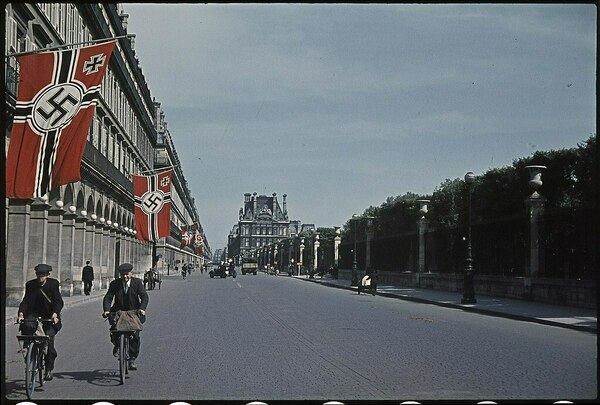
In this lecture, Abigail Lewis will discuss her research on the afterlives of wartime photographs in post-World War II France. Focusing on the display of these images as evidence in war crimes exhibitions and collaboration trials, she considers how photographic material complicated France's attempts to make sense of Nazi occupation and French collaboration.
The lecture is free and open to the public. Boxed lunches will be available on a first-come, first-served basis at noon, 30-minutes prior to the lecture.
About the Speaker
Abigail Lewis received a Ph.D. in European History in 2022 from the University of Wisconsin-Madison and a B.A. in History in 2012 from UNC-Chapel Hill. Her scholarship focuses on photography and the politics of memory in post-World War II Europe. Her research and teaching methods use visual and material culture to understand experiences of conflicts including warfare, occupation, revolution, and conquest in European history. Through visual culture, her courses examine questions of European cultural identity, collective memory, and everyday life.
Lewis held a fellowship at the United States Holocaust Memorial Museum and continues to work with this institution on several projects, including the Experiencing History: Holocaust Sources in Context digital collection and the 2022 Silberman Faculty seminar on “Teaching Holocaust Photographs.” She also held fellowships abroad including a Chateaubriand Dissertation Fellowship and a Bourse Jeanne Marandon in France, a DAAD language fellowship in Germany, and the George L Mosse Exchange Fellowship at the Hebrew University of Jerusalem, Israel. Dr. Lewis currently serves as the postdoctoral research associate for the Nanovic Institute for European Studies.